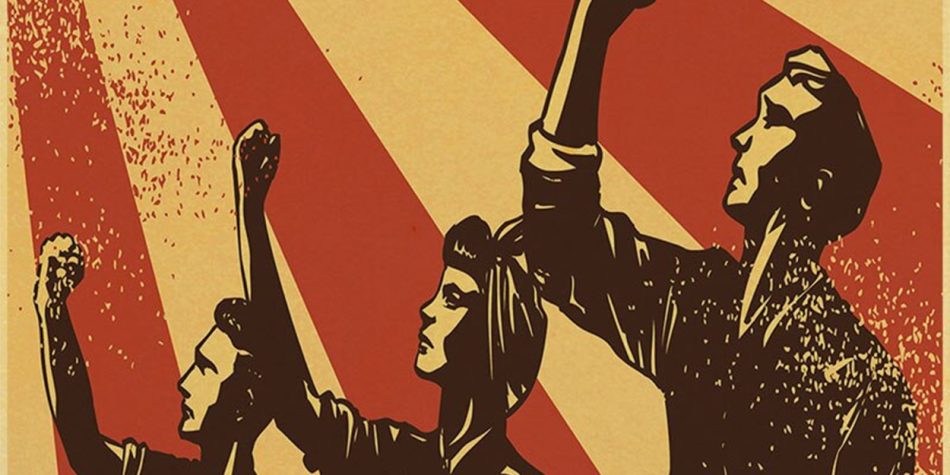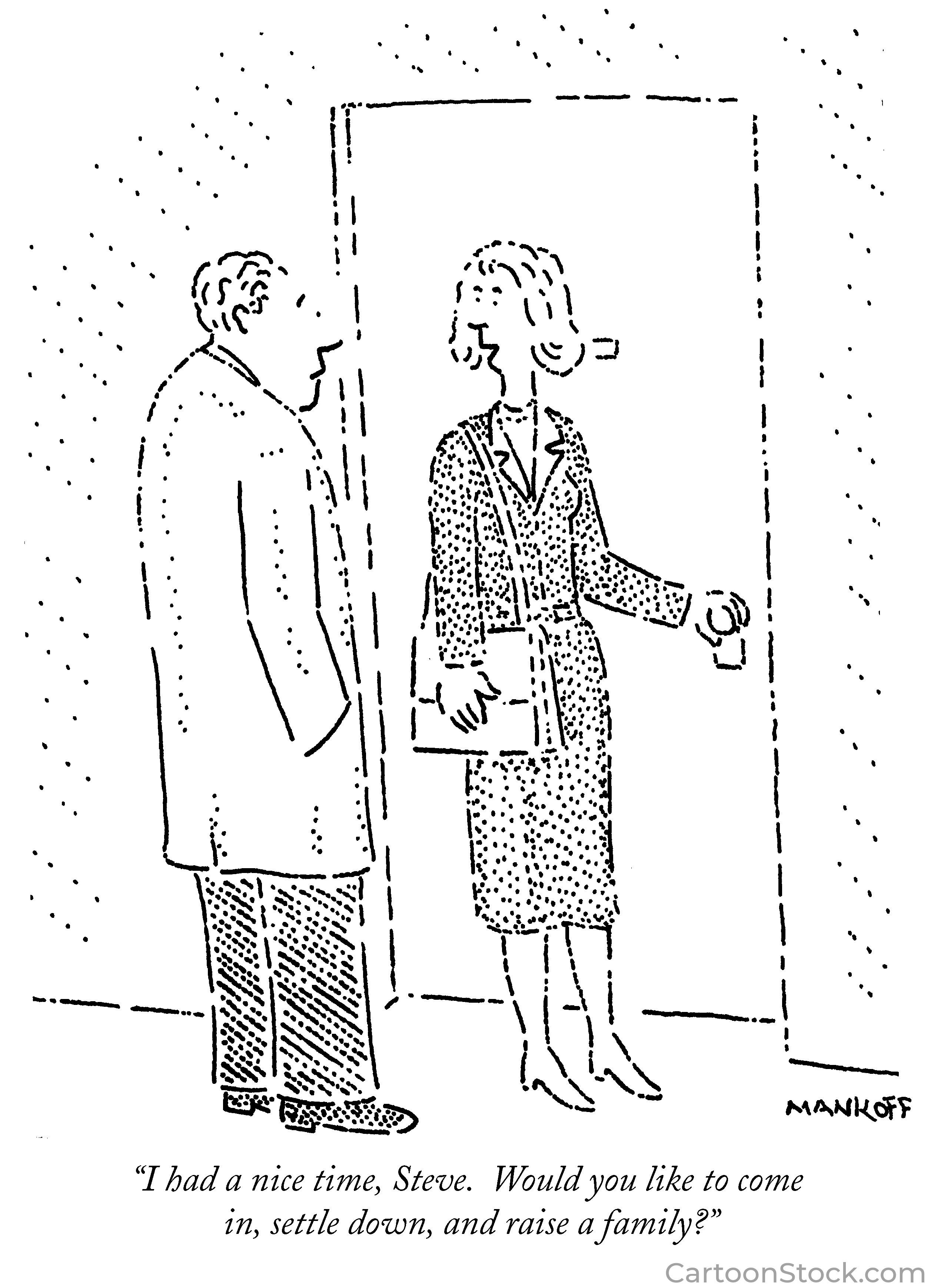. . . But when you talk about destruction – don’t you know that you can count me out. You tell me it’s the institution; Well, you know, you better free your mind instead.
-John Lennon & Paul McCartney
It is no longer news anymore the degree to which American politics have become inflamed. From mutual perceptions of the monstrosity of our opponents, to the choice of language in responding to the grave threat their unfortunate existence means for our nation, these are no longer “standard political battles.” And I’m not alone in underscoring a troubling trend: the increasing willingness to employ an incendiary language of revolution and irreconcilable conflict as a way to stir and leverage partisan passions.
Since the impeachment proceedings began, for instance, President Donald Trump has called the effort both a “COUP, intended to take away the Power of the People” and a “brazen attempt to overthrow our government.”
A language of revolt has also not been uncommon on the political left, from comments such as “is it time to storm the barricade?” to more systematic calls for a political “revolution.”
Obviously, none of these instances involve people calling for violent uprising. And much of this can be (and is) written off as the hyperbolic rhetoric of the political realm. Indeed, the language of revolution is also commonly employed to highlight dramatic cultural shifts (“sexual revolution,” “LGBT revolution”) or to generate excitement about other shifts people want to see, such as calls for a “sustainability revolution” or a “climate revolution.”
But especially in our charged partisan environment, revolutionary language can also take on a more worrisome tenor—even hinting towards the possibility of physical escalations. Just last month, for instance, the President shared a tweet from an evangelical leader suggesting that impeachment would “cause a Civil War like fracture in this Nation from which our Country will never heal.”
And after once comparing the Mueller investigation to an “attempted coup,” President Trump has since characterized impeachment proceedings as a coup seven times—more than once hinting that “the people would revolt” if it actually happened, saying in one interview: “I can tell you I have the support of the police, the support of the military, the support of the Bikers for Trump — I have the tough people, but they don’t play it tough — until they go to a certain point, and then it would be very bad, very bad.”
It’s important to note that President Trump has also spoken out against overt calls for aggression and media depicting violence. The concern here is the inadvertent, unintended consequences that might arise despite stated intentions. And in this case, although the language is vague, the insinuation is not hard to follow, as columnist Aaron Blake put it: “even bikers could be tempted to rise up if things don’t go Trump’s way. He’s at the very least toying with the idea that things could become violent.”
Once again, while President Trump’s comments have primarily functioned to serve notice to opponents to play nice or back off, there is legitimate reason for concern at the degree to which such language might “plant a seed in certain people’s minds,” as Blake notes, “and the fact that Trump keeps fertilizing that seed shouldn’t escape notice.”
He’s right. But, in fairness, it’s far more than voices on the right who have been fertilizing that dangerous seed. Since President Trump was elected, a remarkably relentless level of vitriol has been directed at him personally—from pervasive condemnations in national media generally to more potent examples—one thinks, for example, of Kathy Griffin holding what appeared to be a model of the president’s bloodied, severed head. With the rise of Antifa, it’s hard to not be concerned with the escalation of aggression on the left.
Furthermore, when it comes to portraying congressional oversight as dangerously illegitimate, one writer points out that it was several House Democrats who in 1998 first called Republican-led proceedings against Bill Clinton “a partisan coup d’état.”
Whichever side it comes from, such talk deserves more careful reflection from us all. After noting that coups are “extraordinarily destructive events” that “create cycles of purges and retribution that inevitably lead to wider bloodshed,” Brian Klaas, an expert on coups, cautions, “because coups cause such turmoil, even alleged plots can cause chaos.”
Without wading into the wisdom of the House’s impeachment proceedings (and yes, there are legitimate concerns being raised by Republicans), it’s worth pointing out that impeachment is “the opposite of a coup in about every way imaginable” as Klaas emphasizes—with a coup defined as “illegal and overt attempts by the military or other elites within the state apparatus to unseat the sitting executive.” The contrast then, he suggests, should be clear:
Coups are illegal. Impeachment follows the law. Coups tear up constitutions. Impeachment is established by Article II, Section 4 of the U.S. Constitution…Coups are lightning-quick attacks that rely on the element of surprise to catch the leader off guard. Impeachment is a slow, methodical and publicly known process built on painstaking evidence-gathering. Coups are secret plots. Impeachment hearings take place in the arena of public opinion.
Klaas concludes that a “messaging strategy that conflates legitimate and lawful congressional oversight with an illegal military putsch makes violent conflict more likely”—and could be legitimately considered another “form of incitement, because it primes supporters to think of appropriate remedies in terms of political violence.”
These are serious claims, and ought to give anyone on the right channeling such language more pause.
Now, it’s time to give people on the left equally serious reason for pause. In an MSNBC segment earlier this year, Jeff Daniels declared soberly, “If we go to the end of 2020 and lose…it’s the end of democracy.” And a few months later, New York Times Columnist Thomas Friedman wrote, “We cannot tolerate four more years of Trump. It will be a disaster for our norms, our national unity and our institutions, especially the Supreme Court.”
This kind of strong language—which has been pervasive on the left for some time now—is notable for the absolute nature of its declarations of concern. Democracy is over if this guy is re-elected. We cannot tolerate any more of this. More than simply firing up the base, the relentless nature of this kind of rhetoric over recent years has arguably fueled a uniquely intense level of preoccupation, anger and angst in America today.
If that’s as far as it went, though (alarm about the consequences of President Trump’s current or future administration), it may be justifiably written off as standard political fare. But over the last decade, the progressive left has become increasingly effective at advancing a picture of irreconcilable conflict in America at the level of core demographics and identities—something that I would argue is even more incendiary than reactive messaging coming on the right.
Professor Jordan Peterson, for instance, has called attention to ascendant arguments on the left that position white people against black people, women against men, and the gay community against conservative religious communities. Peterson argues that such language reflects, in essence, a continuation of the same rhetoric that incited destructive Marxist revolutions over the last century—based as they were on an accusing ideology of irreconcilable conflict between rich vs. poor (bourgeoisie vs. proletariat).
To be sure, there are a great many legitimate concerns being raised from women, ethnic minorities, and the gay community in our society today. But rather than taking up these concerns as workable in a united society, the terms of our prevailing conversations about these issues often presupposes inevitable, fundamental, ceaseless conflict. As the larger argument goes, without fundamental, system-disrupting change, marginalized people can expect to suffer continued oppression at the hands of any number of power-holders who are not to be trusted. That makes the existing order a threat—and efforts to help people work together (civility, dialogue, bipartisanship, etc.) a naive distraction at best. The result is endemic, relentless accusation.
It’s not hard for Latter-day Saints to see similarities between these modern accusations and the rhetoric motivating antagonists in the Book of Mormon—starting with early accusations that faith leaders had “sought power and authority” over others for their own benefit. Future conflict was spawned as these resentments were passed down generation to generation, with children fully convinced their fathers had been “wronged in the wilderness by their brethren, and they were also wronged while crossing the sea; and again, that they were wronged while in the land of their first inheritance, after they had crossed the sea.”
Sound familiar? Wronged, wronged, wronged. This was not a mere difference in opinion regarding power relations in ancient America. As the Book of Mormon record makes clear, these accusatorial ideologies fomented real-life acts of aggression, even ongoing attacks on people of faith from the aggrieved to “avenge their wrongs.”
Alongside its timely warning for the American people today, it’s important to highlight how this same text offers a compelling way out of this spiraling mess of resentment and recrimination. Instead of fantasizing about even more lurid depictions of our political opponents’ despicability, the core message of Jesus Christ starts with an invitation to turn inward—looking more honestly at the state of our own hearts. What if we could free ourselves of hostility and enmity at our very cores—and find a wholly different regard and feeling for each other (even amidst continuing, meaningful disagreement)?
That points towards an alternative path for our aggrieved society today. Rather than an uprising against rich people, white people, religious people, or men everywhere, scripture highlights another revolution entirely: an ongoing, divinely-led uprising of good destined to overcome all evil. In a stirring passage from Mere Christianity, C.S. Lewis notes the New Testament emphasis on a “Dark Power in the universe—a mighty evil spirit” who fomented “a civil war, a rebellion” among God’s children, before adding:
We are living in a part of the universe occupied by the rebel. Enemy-occupied territory-that is what this world is. Christianity is the story of how the rightful king has landed, you might say landed in disguise, and is calling us all to take part in a great campaign of sabotage. When you go to church you are really listening-in to the secret wireless from our friends [a covert method of communication during WWII]: that is why the enemy is so anxious to prevent us from going.
Which revolution, then, shall we join? And what are we to make of all the other revolutions being invoked and provoked in our day?
As has been rightly underscored on more than one occasion in the national discussion, the growing usage of revolutionary possibilities to advance one’s own political prospects is deeply concerning—and cannot be written off as just another talking point on the left. This should, I believe, cause general concern for us all. People of faith, in particular, should not forget how frequently people in scripture are “stirred up” to violence by aggressive, exaggerated, deceptive provocations (the Jews against Paul, the Lamanites against the Nephites)—a prescient pattern that shows up over and over (at least 100 times).
Although such violence is clearly not what any of us in America want, neither do most societies who get carried away in cycles of bloodshed—which, by definition, involves something taking on a life of its own (beyond our intentions). And that, I would argue, almost always starts with getting carried away in dark, accusing rhetoric that sets the stage for that aggression.
That’s why, in today’s hyper-partisan atmosphere, we can’t ignore how quickly incendiary accusations continue to spread—with early accusations of an attempted coup now being amplified widely. Christian leader Pat Buchanan wrote recently of millions believing the impeachment proceedings were a “deep state-media conspiracy to overturn the 2016 election and effect a coup d’etat.” Newt Gingrich has called impeachment proceedings an “unconstitutional coup d’etat,” with Sean Hannity describing them as a “Soviet-style impeachment coup attempt.” Tucker Carlson, Breitbart, Rush Limbaugh and “Fox & Friends” have channeled the accusation, which is now showing up in reelection videos and has been repeated daily by a total of at least 15 different guests or hosts of Fox News since the impeachment inquiry started.
As this level of dark suspicion grows wider and deeper, what will such accusations of deep malevolence (to the point of attempted government overthrow) mean for how the public ultimately responds to the outcome of impeachment proceedings or the presidential election itself?
It’s hard to argue it won’t make things harder—even much harder—whatever the result.
Although revolution gave birth to this country, America’s Founders made very clear on the eve of their own inspired revolt that conditions “long established should not be changed for light and transient causes.”
We should heed that counsel today and take promiscuous rhetoric about upheaval very seriously. There clearly is a time to revolt—as America’s birth itself attests. But there are other times when premature invocations of the need to revolt or overstated insinuations of its threat only serve to further unsettle and destabilize us all—like shouting “fire” in a crowded theater.
May we follow the prudence of our Founders, even as we all rightfully stand up and fight for what each of us believes is the right course ahead in these perilous times.


















